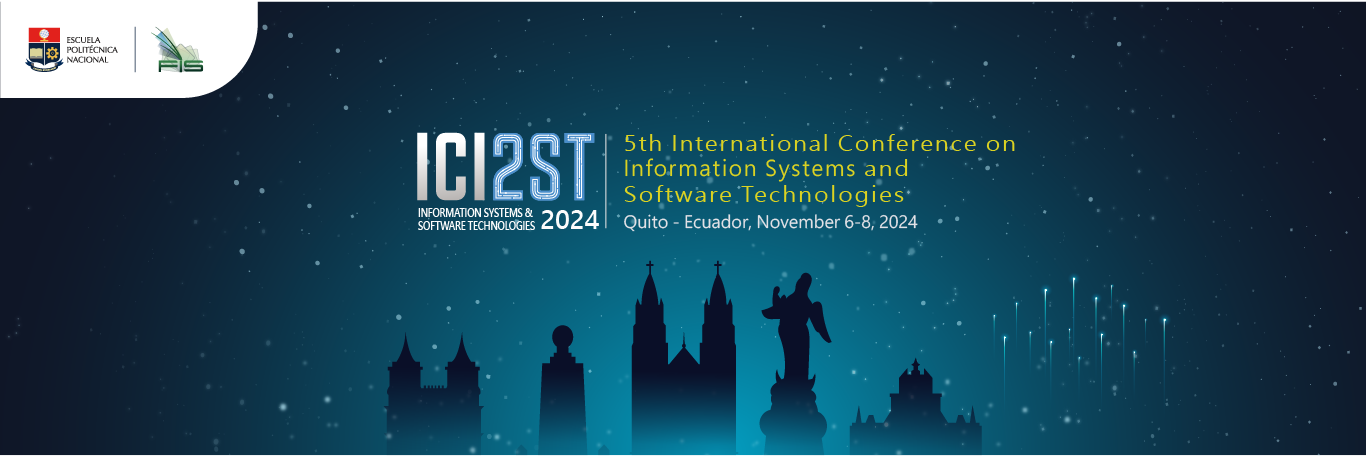Dra. Priscila Cedillo
Universidad de Cuenca

Conference theme:
Emerging technologies and multi-disciplinarity in Ecuador
Abstract:
Emerging technologies have become a fundamental tool for people, improving their quality of life and social behavior, mainly in vulnerable social groups (e.g., older adults, children, and adolescents). In this context, there have been many advances within the country regarding creating solutions that integrate these technologies with research and development. Thus, the academy, both undergraduate and postgraduate training, and its objective of linking with society find in research and multidisciplinarity to integrate technology across different areas of knowledge. For this reason, topics such as the Internet of Things (IoT), cloud computing, Brain-Computer Interface (BCI), Human-Computer Interaction (HCI), Assisted Living Environments ( AAL), Quality of Software, Massive Open Online Courses (MOOCs), among others, have been used for the development of research and support to domain experts in fields such as Medicine, Psychology, Education, etc.
This paper shows as an example a compilation of the results obtained in the framework of several research projects in which emerging technologies play a crucial role in the advancement and development of solutions aimed at improving the lives of the elderly, solutions that have been developed in one of the country's research laboratories.
Speaker biography:
She completed her undergraduate studies at the University of Cuenca - Ecuador, obtaining a degree in Systems Engineering. In addition, she is about to obtain her Juris Doctor degree from the Courts of the Republic at the Private Technical University of Loja (Scheduled for September 2022). She has a Master's degree in Telematics from the University of Cuenca (2007) and a Master's degree in Software Engineering, Formal Methods, and Information Systems from the Polytechnic University of Valencia in Spain (2013). She obtained her Doctor in Computer Science degree at the Polytechnic University of Valencia (2017), with her doctoral thesis: "Monitoring the quality of cloud services through runtime models." She obtained the mention Cum Laude, International Doctorate, and the candidacy for the extraordinary prizes for the best doctoral thesis. She carried out two postdoctoral stays in the area of Software Engineering in Spain with prizes awarded by the Carolina Foundation (2018 and 2022) on topics related to Cloud Computing and Brain-Computer Interfaces (BCI). During her doctorate, she belonged to the Software Engineering and Information Systems (ISSI) research group at the Universitat Politècnica de València and has completed pre-doctoral research stay at the Tokyo National Institute of Informatics in Japan. Fellow of the Senescyt in 2011 (Doctoral Scholarship), Scholarship of the Japanese Government (Scholarship for pre-doctoral stay), Scholarship of the Carolina Foundation (Scholarship for Postdoctoral stays), Scholarship of the University of Leicester-England (School of Summer in the area of Human-Computer Interaction).
She has been a full professor-researcher at the University of Cuenca from January 2009 to the present and an occasional professor-researcher at the University of Azuay. Her lines of research are Cloud Computing, Software Quality, Model-Driven Engineering, Internet of Things, Human-Computer Interaction, and Computer Security. She has written around 100 indexed scientific articles and has directed several research projects related to her training area, including two projects funded by CEDIA (CEPRAS). She is also the Director of several doctoral theses at the Polytechnic University of Valencia in Spain and the University of La Plata in Argentina.


